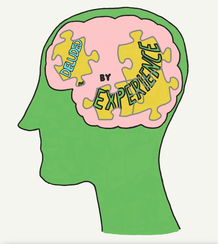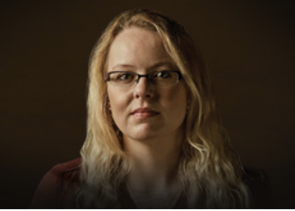|
Deluded by Experience A 30-month Project funded by the Arts and Humanities Research Council (£250,000), AH/T013486/1 Follow us on twitter: @del_by_ex Project summary Our beliefs shape our understanding of the world and our success or failure in interacting with it. To that end, our beliefs are sensitive to evidence and are supposed to be true. When things go seriously wrong and we become prey to delusions, it is natural to try to identify errors present in belief formation and evaluation which might help us understand why things have gone so wrong. Monothematic delusions are a particularly interesting case because subjects have delusions about a specific subject matter (hence 'monothematic'), while otherwise being able to form and evaluate beliefs normally. Philosophers and psychologists have pioneered a two-factor approach to understanding these beliefs, which identifies specific types of anomalous experience that engender the delusion (factor one), as well as clinically significant errors in belief formation and evaluation (factor two). Our research will reveal that there is no need to posit a second factor. The anomalous experiences people with delusions undergo are far more significant than has been supposed: the specific nature of the experience settle the delusions into which subjects fall, to which they respond, roughly, as normal subjects would. There is no need, we say, to suppose that people with delusions form and evaluate their beliefs differently from subjects without delusions. For example, in Capgras delusion subjects believe that a loved one has been replaced by an imposter. They do not have the affective response usually associated with looking at their loved one, and so there is an experience of absence. We want to defend an account of how people come to believe very bizarre things such as this, which focuses on these strange experiences and resists appeal to clinically abnormal reasoning. We argue that the way in which people with delusions reason, from their highly anomalous experience to their very bizarre belief, is normal. To say that the reasoning is normal is not to say that it is rational. Healthy subjects reason in all sorts of irrational ways - it is normal to be irrational! Just as conspiracy theorists, horoscope advocates, and some religious believers have some strange belief-forming practices, so too do people with delusions who face strange experiences, which their resulting delusions help to explain. We do not need to posit special kinds of irrationality to explain delusional belief.
|
We will investigate how our work on delusional belief interacts with philosophical work on perceptual experience and the nature of belief. Some philosophers in the former area have argued that hallucinatory experiences lack phenomenal character (which is to say, there's nothing it feels like to undergo them). We think that philosophers attracted to this view of hallucinations cannot accept a theory of delusion that appeals to them for, at least, an important class of monothematic delusions (those with positive hallucinatory content as opposed to experience of absence).
As for the nature of belief, it is commonplace to think that belief is connected to truth. This is demonstrated by the lack of control we have over our beliefs. Although we can imagine things we do not take to be true - which the world of novels, artworks, and movies make use of - we cannot believe things we do not take to be true. Facts like these have led some philosophers to claim that all beliefs aim at truth. We will explore whether delusional beliefs are linked to truth in this way. If they are not, then perhaps we need to reorient our theory of belief, and if they are so truth-aimed, why do they get things so wrong?
Our research into monothematic delusion will have a natural extension into other areas of highly specific, apparently rationally resistant beliefs. Human subjects are trapped by salient experiences into beliefs it is hard for them to give up. The proper understanding of this has wide implications and, indeed, considerable relevance in the current political and intellectual climate.
Main objectives
Project Partner
Our Project Partner is Headway Birmingham an Solihull. Headway is a national charity working with people affected by brain injury with the goal of working towards better understanding of brain injury and how it impacts lives. Our Project Deluded by Experience shares these goals. Specifically, it seeks to identify a new framework for thinking about people with monothematic delusions, something often brought about following brain injury. In the clinical context, it is often presumed that people with these delusions following brain damage exhibit clinically significant irrationality, rather than attempting to understand highly unusual experiences due to brain damage, and doing so in a way which is more irrational than how non-clinical subjects might do so. This background presumption of course informs practice. We will work with Headway towards an alternative understanding of this condition and consider implications for clinical practice.
Advisory Board
An Advisory Board will oversee the progress of the project. The Advisory Board members are:
Lisa Bortolotti (Professor of Philosophy, Birmingham)
Philip Corlett (Associate Professor of Psychiatry, Yale)
Fiona McPherson (Professor of Philosophy, Glasgow)
Daniel Whiting (Professor of Philosophy, Southampton)
Ryan McKay (Professor of Psychology, Royal Holloway)
John Sutton (Professor of Cognitive Science, Macquarie)
As for the nature of belief, it is commonplace to think that belief is connected to truth. This is demonstrated by the lack of control we have over our beliefs. Although we can imagine things we do not take to be true - which the world of novels, artworks, and movies make use of - we cannot believe things we do not take to be true. Facts like these have led some philosophers to claim that all beliefs aim at truth. We will explore whether delusional beliefs are linked to truth in this way. If they are not, then perhaps we need to reorient our theory of belief, and if they are so truth-aimed, why do they get things so wrong?
Our research into monothematic delusion will have a natural extension into other areas of highly specific, apparently rationally resistant beliefs. Human subjects are trapped by salient experiences into beliefs it is hard for them to give up. The proper understanding of this has wide implications and, indeed, considerable relevance in the current political and intellectual climate.
Main objectives
- Develop a purely experiential theory of monothematic delusion according to which monothematic delusions are normal responses to anomalous experiences.
- Provide a substantial challenge to the current orthodoxy on monothematic delusion according to which there is both clinically abnormal experience and belief formation/evaluation processes at work in these cases.
- Consider the relationship between experienced-based accounts of delusion formation and debates on the nature of experience in the philosophy of perception since the proper understanding of monothematic delusion challenges currently favoured philosophical accounts of experience as relation to objects and properties experienced.
- Consider the relationship between experience based accounts of delusion formation and philosophical debates on the nature of belief and its relationship to truth.
- Provide a well-worked out framework for integrating certain work in psychology with related work in philosophy.
- Bring philosophical work on delusion formation to a wider philosophical audience, particularly those interested in perception and belief.
- Bring philosophical work on delusion formation to a wider non-philosophical academic audience (i.e. psychologists, neuroscientists).
- Bring philosophical work on delusion formation to a non-academic audience (including practitioners, mental health specialists, and the general public).
Project Partner
Our Project Partner is Headway Birmingham an Solihull. Headway is a national charity working with people affected by brain injury with the goal of working towards better understanding of brain injury and how it impacts lives. Our Project Deluded by Experience shares these goals. Specifically, it seeks to identify a new framework for thinking about people with monothematic delusions, something often brought about following brain injury. In the clinical context, it is often presumed that people with these delusions following brain damage exhibit clinically significant irrationality, rather than attempting to understand highly unusual experiences due to brain damage, and doing so in a way which is more irrational than how non-clinical subjects might do so. This background presumption of course informs practice. We will work with Headway towards an alternative understanding of this condition and consider implications for clinical practice.
Advisory Board
An Advisory Board will oversee the progress of the project. The Advisory Board members are:
Lisa Bortolotti (Professor of Philosophy, Birmingham)
Philip Corlett (Associate Professor of Psychiatry, Yale)
Fiona McPherson (Professor of Philosophy, Glasgow)
Daniel Whiting (Professor of Philosophy, Southampton)
Ryan McKay (Professor of Psychology, Royal Holloway)
John Sutton (Professor of Cognitive Science, Macquarie)





